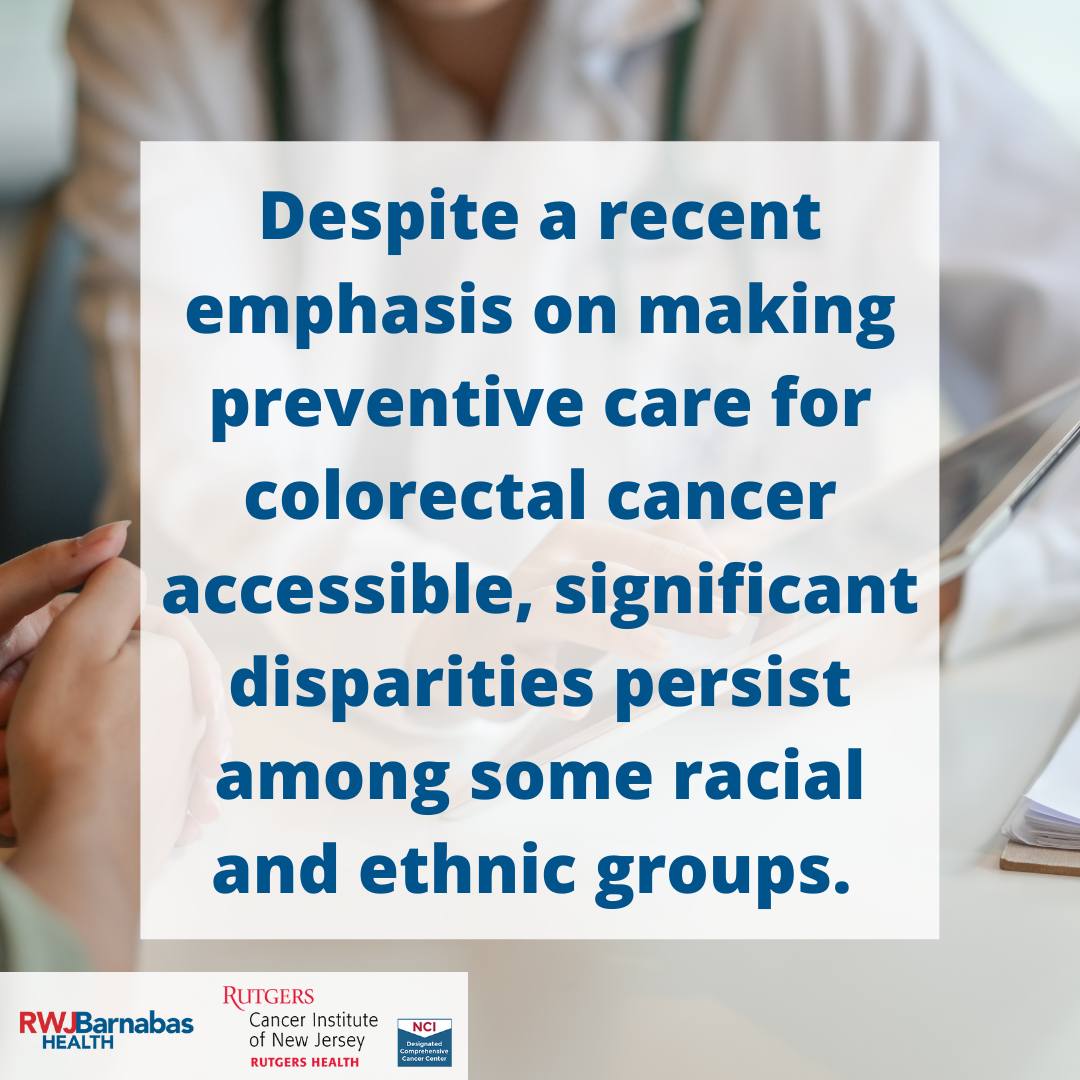
New Brunswick, N.J., March 1, 2022 – Colorectal cancer (CRC) is a major cause of cancer-related mortality in the United States. Over the last decade, health systems have put a stronger emphasis on making preventive care accessible and equitable, which has contributed to a reduction in colorectal cancer incidence and mortality for the general population. However, significant disparities persist among some racial and ethnic groups.
Denalee O’Malley, PhD, assistant professor of Family Medicine and Community Health at Rutgers Robert Wood Johnson Medical School participates in research examining the impact of primary care implementation approaches for colorectal cancer (CRC) screening on racial and ethnic disparities comparing types of screening tests used for patients with diabetes. She is a member of the Cancer Prevention and Control Program at Rutgers Cancer Institute of New Jersey and a research member of the Cancer Health Equity Center of Excellence at Rutgers Cancer Institute of New Jersey and shares more about this topic.
Why is it important to explore racial and ethnic disparities in colorectal cancer screening?
Screening for CRC is a cost-effective way to reduce diagnosis and improve early detection. When colorectal cancer is detected early, there are improvements in both the quality and quantity of life. For example, colonoscopies can detect polyps before they become cancer and these are removed which has the potential to prevent a colorectal cancer diagnosis. There are long-standing disparities in cancer screening with non-Hispanic Blacks and Hispanic populations receiving less screening than non-Hispanic whites. So, we are missing opportunities to prevent CRCs in priority populations disproportionately. We see these disparities in clinical outcomes between racial and ethnic groups. For example, non-Hispanic Black colorectal cancer patients have lower survival rates and are more likely to be diagnosed at advanced stages compared to non-Hispanic White patients. We need to implement strategies to improve CRC screening in priority populations to prevent loss of life.
What are the barriers that seem to be causing the disparity among some racial/ethnic groups?
There are multiple, multi-level barriers that contribute to the disparity in CRC screening in priority populations. At the patient level—lack of insurance, fear of results or costs, lack of information, time, transportation, and care access issues are some of these barriers. There are several options for CRC testing and these have different testing intervals. Some tests are more invasive and the preparation requires more time and resources. For each CRC screening type, there are different potential barriers. For example, stool based tests like fecal immunochemical tests (FIT)/guaiac fecal occult blood tests (gFOBT) are less invasive but require patients to complete collection of a stool sample. Patients can get a kit from a provider or through the mail. Previous studies indicate many kits are not returned, patients have cited fear of results, cost for colonoscopy, non-receipt of the test, concerns about mailing fecal matter, and being too busy as barriers to completion. Colonoscopies are more costly and require preparation to clean out the colon, as well as transportation to and from the visit. Federally qualified health centers primarily serve priority underserved racial/ethnic minority populations and have struggled to implement CRC screening sustainably for many reasons.
What are some potential strategies to improve screening rates in those communities?
Multiple strategies can be employed to improve screening rates among racial and ethnic minority populations. Chief among these are the provision of resources and support to the federal qualified health centers tasked with colorectal cancer screening care delivery for priority populations. ScreenNJ, for example, partners with organizations like federally qualified health centers and others across New Jersey to provide resources, and support outreach and community education, provider education and peer support/patient navigation programming.
Learn more about the Cancer Health Equity Center of Excellence, which has a mission to advance the achievement of equitable access, improved health care quality, and improved outcomes across the cancer continuum through research, education and training, community engagement and outreach, and public policy advocacy.
###
For journalists – contact:
Krista Didzbalis
Media Relations Assistant
732-507-8307
krista.didzbalis@rutgers.edu
For patient appointments/inquiries – contact:
844-CANCERNJ (844-226-2376)

